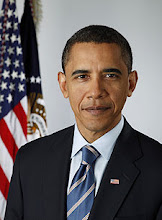The most ambitious plan in half a century to fight malaria, unveiled last week by a who's who of top malaria scientists, won't work unless there's broad public support for the sustained spending required to eradicate the disease. For this reason, celebrities, such as Bono, who was on hand for the press conference last week, have signed onto the cause. Actor Forest Whitaker, who won an Academy Award for his role as Idi Amin in the film The Last King of Scotland, saw firsthand how dangerous the disease can be when many of his colleagues came down with malaria during filming in Uganda. He and his wife took a trip to Angola earlier this year, under the auspices of American Idol, to raise awareness for malaria victims. He talked with NEWSWEEK's Jaime Cunningham about his experiences in Africa and what needs to be done to control malaria. Excerpts:
NEWSWEEK: What got you interested in being involved with malaria in the first place? Forest Whitaker: I started to do some research into different organizations. After that, I spent some time in Uganda [filming The Last King of Scotland] where malaria was a problem as well, and I got an opportunity to visit a few other places. I wanted to see if there was some way that I could help educate, raise money and stop this epidemic that's losing so many lives. And it was really sad to me that a million people die a year. It is a disease that largely affects the underprivileged, the really poor. And 90 percent of the people are on the African continent, which also affected me. I was surprised that we are allowing this thing to happen at the magnitude and the rate that it is. It has been going on like this forever it seems, and only recently have people been starting to step up and help eradicate it.
Did you worry about malaria when you were filming The Last King of Scotland?
I remember the fear that people had of catching the disease when we were in Uganda. I know the filmmaker was trying not to take the malaria medication, which you can only take for a certain amount of time. Some people would try not [to take it]. A number of the cast members that were of African descent that weren't taking the malaria medications were getting struck down by the disease. Like I say, they'd built up resistance—these were 40 year old people, but they were still affected and they had to go take medication. They had fevers and diarrhea and had to step away from the project from a week or two weeks. So everyone started to take it.

No comments:
Post a Comment